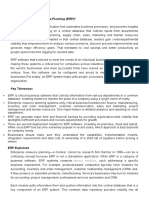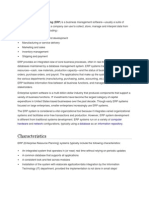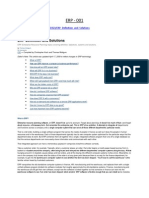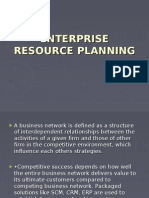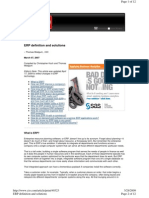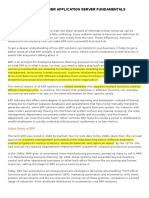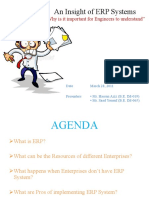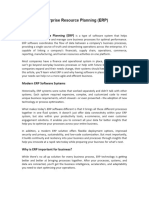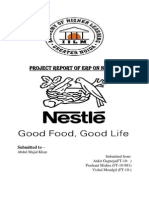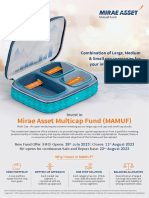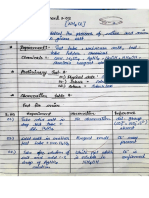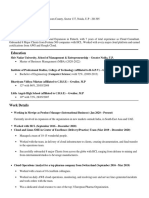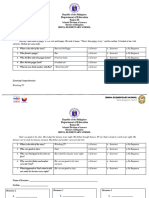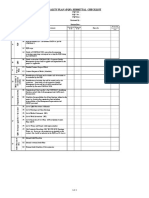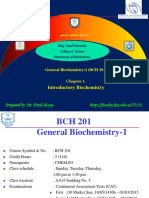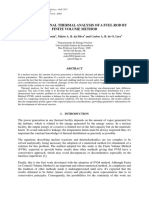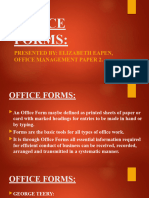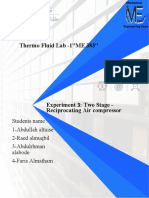0% found this document useful (0 votes)
47 views16 pagesLKM - GFT - SAPSD - 01ERP Overview
The document provides an overview of Enterprise Resource Planning (ERP) software, detailing its role in managing and integrating business processes across various departments such as sales, finance, and manufacturing. It highlights the advantages of ERP systems, including streamlined processes, centralized data, workflow automation, and real-time tracking. Additionally, it discusses the challenges of function-based applications and emphasizes the importance of ERP in enhancing organizational efficiency and decision-making.
Uploaded by
SAMIRCopyright
© © All Rights Reserved
We take content rights seriously. If you suspect this is your content, claim it here.
Available Formats
Download as PPTX, PDF, TXT or read online on Scribd
0% found this document useful (0 votes)
47 views16 pagesLKM - GFT - SAPSD - 01ERP Overview
The document provides an overview of Enterprise Resource Planning (ERP) software, detailing its role in managing and integrating business processes across various departments such as sales, finance, and manufacturing. It highlights the advantages of ERP systems, including streamlined processes, centralized data, workflow automation, and real-time tracking. Additionally, it discusses the challenges of function-based applications and emphasizes the importance of ERP in enhancing organizational efficiency and decision-making.
Uploaded by
SAMIRCopyright
© © All Rights Reserved
We take content rights seriously. If you suspect this is your content, claim it here.
Available Formats
Download as PPTX, PDF, TXT or read online on Scribd
/ 16


